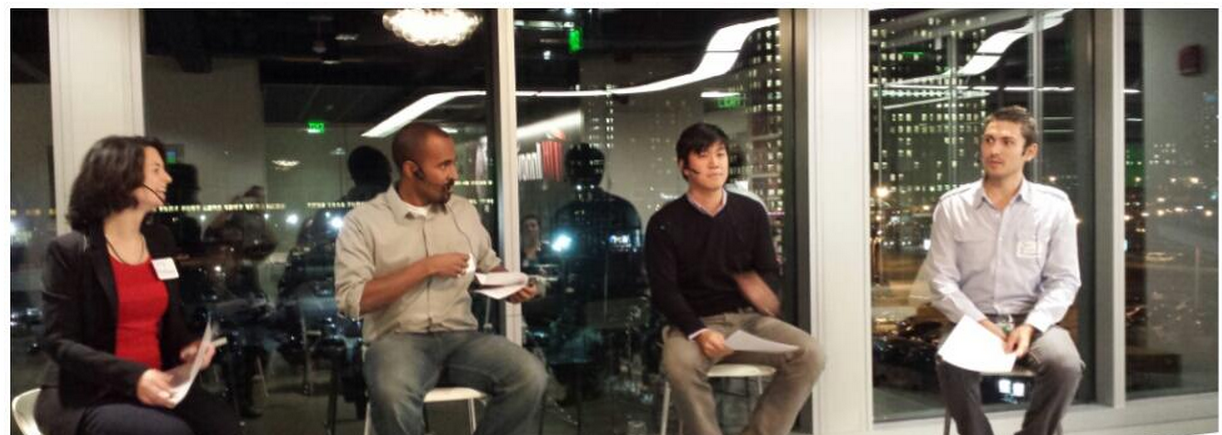
Subscribe to podcast on iTunes
Subscribe to podcast through Feedburner
Subscribe to podcast by E-mail
Download the MP3
The November Greater Boston Startup Culture talk included a lot of great insight on office design from three thought leaders in the field, we had the pleasure of having Jon Frisch, a VP at T3 Advisors, Sidi Gomes, Architecture Designer and Community Leader at CIC’s coworking center C3, and Vince Pan, founder of Analogue Studio join us.
The audience posed questions throughout the evening and the discussion tackled many issues startups face when trying to design their space in light of their culture. Here’s a summary of the talk, check out the podcast for the complete discussion!
When you align the design with your culture and identity, the probability that you’ll attract and retain the right people is higher. – Jon Frisch
If you are looking for a coworking space, tour a few in order to find a place that is a good cultural fit. – Sidi Gomes
Where you put the kitchen is one of the most important decisions you’ll make. – Vince Pan
The evolution of workspaces has become a hot topic because it has become evident they were designed for a different era. Traditionally, offices were very hierarchical and in closed environments, a place where employee expectations and wellbeing weren’t part of the equation of a company’s strategic operations. Today, under the influence and development of workplace culture that sprung from Silicon Valley’s tech industry in the late seventies and early eighties, our startup culture has transformed spaces that are breeding grounds for transparency, collaboration and innovation. Looking at how startup culture and office design fit together and learning how we can maximize our space for our individual needs, it’s important to consider the following points as you grow from early stage to large scale:
1. You need to know who you are and what your needs are as a startup before you consider the type of space that’s going to be right for you. Do you have a mission statement and an established set of values that make the mission actionable?
2. Why bother with physical office space? Remote working is an option for some, but not everyone. For teams looking to create their own environment separate from their living room or a cafe, you want to consider everything from location, structure, flexibility as you grow, community presence, and whether or not it will help your product/brand get you to where you want to be.
3. Things to think about in the beginning. How do you work best (both individually and as a team)? Where does your team do their best work? Why? Recognize what environments are most productive for your team and support that.
4. Make the most of your space and furniture by trying out different things and getting feedback from everyone on the team. Does your team thrive in a stationery or fluid environment? Somme startups find it useful to switch seats daily, monthly, or quarterly. This can backfire if certain folks arrive extra early in order to snag their favorite spot. Take note of who is interacting and how. If folks are feeling crowded by the collaborative space, look into having dedicated quiet space like a partitioned library area. If folks are seeking more community oriented activity, consider where common areas are placed and if they are in use.
5. As you grow in size, so will your startup’s culture. Take stock of your growth and development. Reflect on your needs, as they will often change.
Join us next time for startup culture conversations from more of Greater Boston’s Culture Enthusiasts!